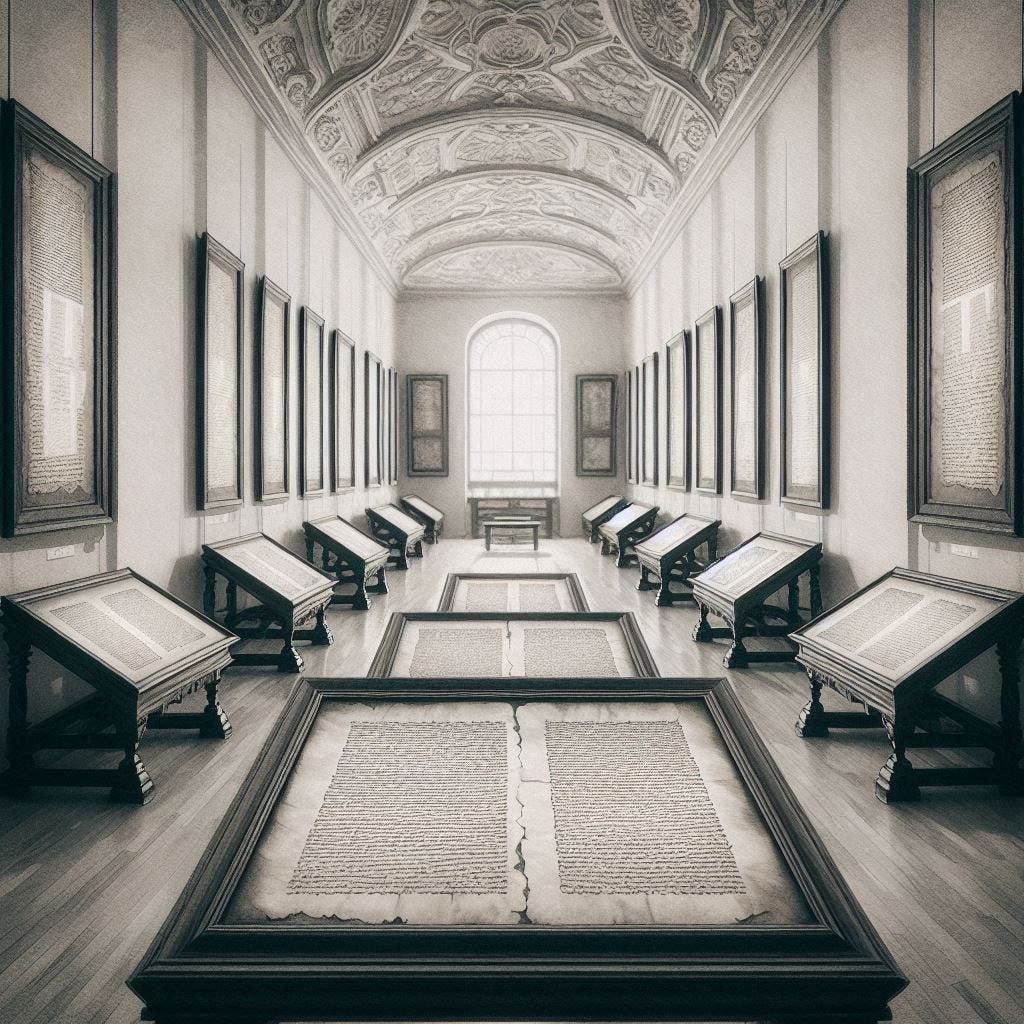I’ve always wanted poetry to be consumed like art– hung on museum walls: giant rooms with poems in elaborate frames, numbers to punch on little devices so the voice of the poet streams into the listeners’ ears as they sit on benches, letting the words sink in, the world dissolving and reconfiguring like kaleidoscopic patterns inside their eyes. And everywhere, people: hearing, reading, nodding, a new light in their eyes, their lips arranged in strange shapes that could be smiles or sighs or something that happens when everything seems a little closer, a little clearer, a little more alive.
David Kirkby’s recent post about the work of an Australian artist, made me wish his poem could be displayed along with the artist’s work. But not just in collaboration with art or nature, poetry needs its own museums too. And maybe we need new ways to appreciate poetry. We read them, we read them aloud, we make reels, we TikTok them, we YouTube them, we Substack them…now we need aesthetically lit walls and curators and ticket counters and a gift shop. That’s right, especially the gift shop.
Because in museums like that, things like this happen:
In the museum of poetry, she searched for a poem
She walked past words trapped in frames,
frames trapped on walls,
walls trapped between earth and sky — to
whom do the words belong? The poet? The
poem? The wall? To her? She held a line in her
mouth for a moment. Felt the abrasion. Felt the
melt of horizon and cursive angst. Twilight, she
thought. This one has a purple aftertaste.
In the corridor, asymmetry swallowed names.
A river ran along one curving wall as she
walked upstream, clinging to the other.
The river never acknowledged her being,
at no point did she believe it didn’t know
her. They didn’t cross, didn’t stop,
moving together in different directions.
Through a window, she saw flowers,
suspended upside down, roots tangled in
clouds, colours so vivid, so bright, like
an overprocessed photograph. A clock on
the wall ticked, waiting for her to realize
there were no leaves. None. At all.
In one spartan expanse, black twisted
on white squares. Uneven, illegible. The
space filled with light. Emptied again.
Over and over. How much of not-telling
is just screaming into a silence? How
much of silence is just another type
of scream? She shivered. Screamed.
The last door opened into a mirrored
room and she saw herself. Was it a
metaphor? Was she? Was this an
omen? An end? The ceiling offered
inversions. One wall became a hundred
walls. One face, a hundred faces. One
truth, a hundred lies. She whispered
one word to one face, to one mirror.
Outside, unseen, a crow flew over the
museum, a half-moon still in its beak.
#Poetry




Friend Rajani....
This is an excruciatingly gorgeous concept, wonderfully realised in words. I might just wander through those rooms in my dreams tonight. I do so comprehensively love the idea. (And not because of your very kind reference to my poem - but thankyou for that too).
It occurs to me - as I consider ordinary people walking through a little museum of poetry - that Poets are just people walking through the massive museum of reality; as large as a universe. We pause, we observe, we see strange connections and symmetries, beauty and its obverse, evil and good.
Then we report.
"She shivered. Screamed." I wonder if this was the point she realized she wouldn't find the poem she sought? The tour of the museum is wonder-full, frightening. Maybe the poem she's seeking is in the last room of mirrors? Maybe a museum can't contain it at all: "Outside, unseen, a crow flew over the / museum, a half-moon still in its beak." Poets do tend to get lost in the museums of the greats.